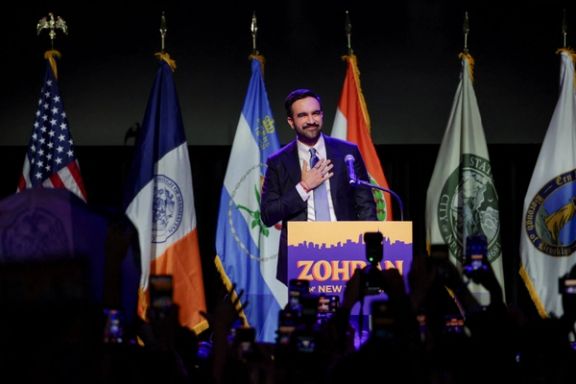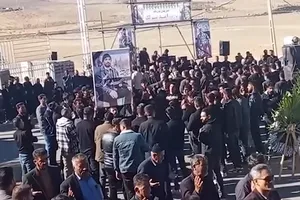Speaking Monday on the anniversary of the November 4, 1979 seizure of the embassy, Khamenei described Iran’s enmity toward the United States as “existential rather than tactical,” a confrontation that cannot be resolved.
“The inherently arrogant nature of the US accepts nothing but submission,” he said. “Every US president desired this. Some concealed it, others expressed it openly. The current president has made it explicit, revealing the US’s true nature.”
For Khamenei, the threat lies not in sanctions or military pressure but in ideological erosion. America’s demands—whether over nuclear activities, missiles, or regional policy—are, to him, attempts to take away what defines the system that has become synonymous with his name.
'Victory day’
Khamenei tried to illustrate this point with both history and scripture.
“Our problem with the United States began on August 19, 1953, not November 4, 1979,” he said, invoking the CIA-backed coup against Prime Minister Mohammad Mossadegh seventy-odd years ago.
On the latter date, he echoed his mentor and predecessor Ruhollah Khomeini in calling it “a day of honor and victory,” doubling down on a bet many insiders now publicly regret.
Even senior conservatives like Ali Akbar Nateq Nouri, once chief inspector of the Supreme Leader’s office, have called the storming of the US embassy “a big mistake,” admitting that the ensuing hostage crisis was “the starting point” of many of Iran’s troubles.
But Khamenei is adamant that repentance equals betrayal. History, as he tells it, shows that every concession to the United States only invites more demands—a conviction hardened through experience.
Impossible conditions
When Donald Trump first took office, he declared that all he wanted from Tehran was a pledge not to pursue nuclear weapons, signaling he had no quarrel with Iran’s theocratic order.
But midway through indirect negotiations in the spring of 2025, his stance shifted toward a more conventional hardline: curbs on missiles, abandonment of regional allies, and most recently, recognition of Israel.
Khamenei’s Monday speech contained a direct reply: “If they stop supporting the Zionist regime, remove military bases from the region and cease interfering in regional affairs, these matters could potentially be reviewed,” he said, referring to calls for engagement with the United States.
The conditions were impossible by design—a reminder that what Washington calls diplomacy, he sees as ideological surrender.
‘Unconditional surrender’
Even when hinting at pragmatic concessions such as curbing enrichment, he was dismissive: “This isn’t something foreseeable for now, nor for the near future.”
Trump’s post on Truth Social in mid-October, calling for Iran’s “unconditional surrender” just days into Israel’s war on Iran, may have been the epitome of what Khamenei always asserted: that America seeks capitulation, not coexistence.
His answer was unambiguous: “Expecting the Iranian nation to submit, given its level of capabilities, wealth, intellectual and spiritual background and its vigilant and motivated youth, is meaningless.”
Khamenei shows no sign of repentance or retreat. To him, the struggle with the United States is not about sanctions or missiles but about identity. In his twilight, he seems as convinced as ever that the system must endure as it is, or not at all.








